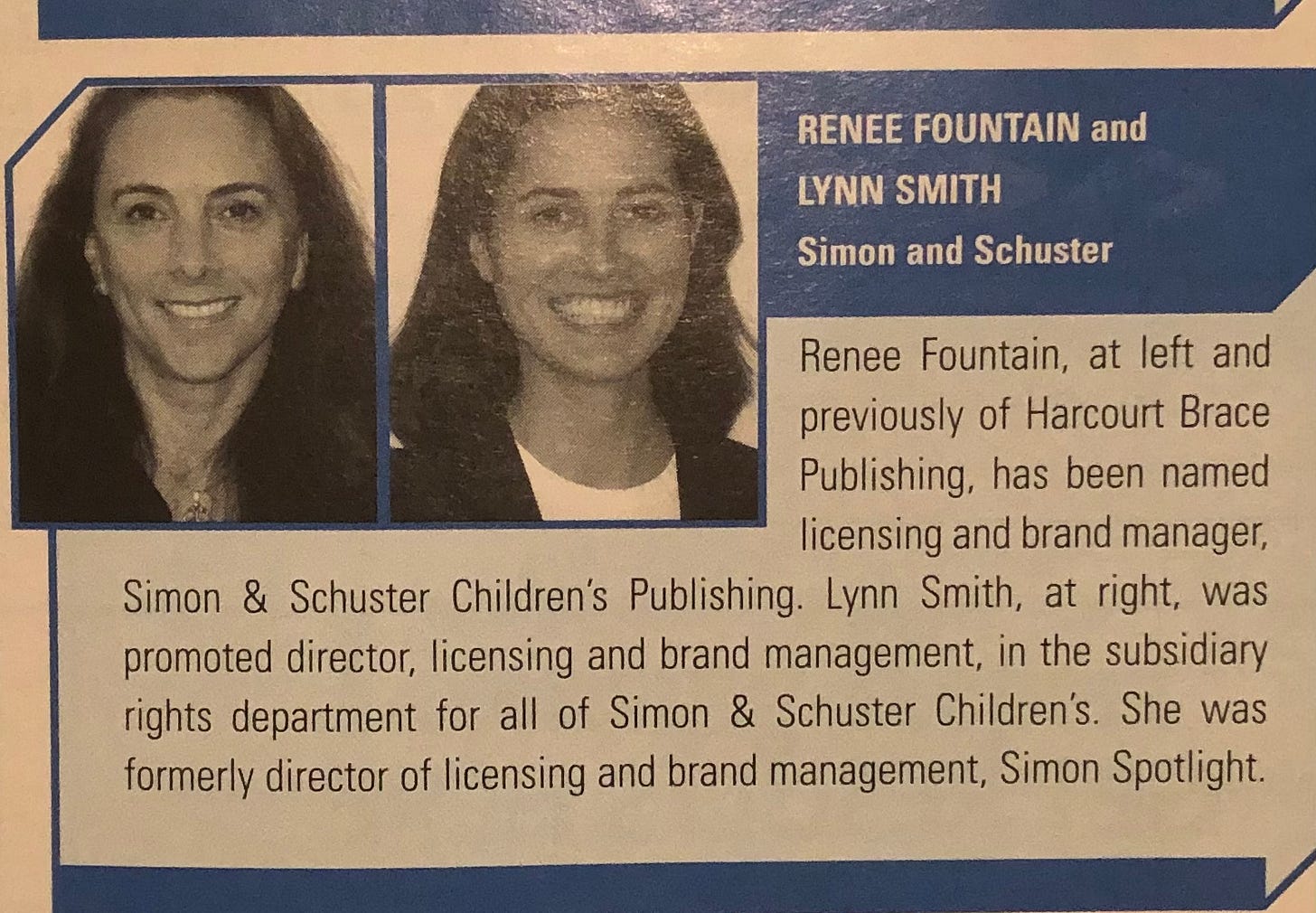The REAL Truth About Agents at Writing Conferences
Setting the record straight on "shady" literary agent practices
There's a persistent misconception in the writing community that literary agents who participate in conferences, pitch events, and workshops are somehow running a scam. That the presence of agents at these events is “shady” and the events themselves are predatory.
I've seen this sentiment expressed by both established authors—which makes it extra disappointing—and newer writers who may not understand how the industry works, and take their cue from established authors.
Let me be clear: there is nothing "shady" about agents participating in writing events. And as someone who does this work, I want to pull back the curtain on what these events actually entail.
What Does an Agent Actually Do at These Events?
For a recent writing conference (which shall remain nameless to protect the innocent), here's what my involvement looked like:
Before the Event
Received and thoroughly reviewed 10 manuscript submissions
Each submission was 21 pages (query letter, synopsis, and 19 opening pages)
Provided detailed, written critiques on what worked and what didn't for each element
Made large scale notes and edits using track changes
Each critique took 2-3 hours of focused work
All of this was completed BEFORE even arriving at the event
Travel Day
At the airport by 5:00 AM
The Pre-Check TSA line was endless
Flight delays (because of course)
Arrived at destination around 12:00 PM
Used "free day" to catch up on cold submissions (including some from February—yes, I’m very behind)
Day One
Worked approx. 10 hours (which includes two 15 min. breaks and an hour lunch).
Met with approximately 15 writers to review and improve their query letters
Attended event dinner and mandatory mixer afterward (8pm start)
Day Two
Worked from 9:00 AM to 7:00 PM (with two 15-minute breaks & 1-hr lunch)
Started with a one-hour agent panel for open Q&A
Met with the 10 writers whose submissions I had critiqued to discuss my notes in-depth
Met with 12 additional writers who pitched their books
Mandatory awards ceremony
Quick dinner before going to bed for an early flight.
Travel Home
Wake up at 3AM to get the shuttle
At the airport by 4:00 AM
Landed at 8:00 AM
Total time away from family: 3 days
The True Economics
For all of this work—the pre-event critiques, the travel, the long days of meetings with 37 unique writers, the missed family time—I received an "honorarium". Honorariums can range $100-$500. For this example, we’ll use the higher one.
Let's do some quick math:
10 critiques × 2.5 hours (average) = 25 hours
15 query letter reviews × 15 minutes each = 3.75 hours
10 in-person critique discussions × 15 minutes each = 2.5 hours
12 pitch meetings × 15 minutes each = 3 hours
Mandatory mixer = 2 hours
Agent panel and Q&A = 1 hour
Awards ceremony = 1 hour (it might have been 1.5)
Travel time (conservative estimate) = 12 hours
That's approximately 50.25 hours of work, which comes out to $9.95 per hour—substantially less than minimum wage in most states, and not the “money grab” it’s made out to be. And this doesn't even account for the mental energy expended or the cost of being away from my regular client work.
Why Do It Then?
Clearly, agents aren’t doing it for the money. So, why do they participate?
I can't speak for every agent, but here's why I continue to do this work:
I genuinely want to help writers improve. This is why I write the Substack articles (for free), conduct monthly webinars (for free), and make myself available to answer questions. All of this before you submit to me, which again, I read FOR FREE.
I'm looking for great new voices. Yes, finding that stand out book is part of the motivation—but it's only a piece of the overall goal of giving writers feedback to help them strengthen and elevate their craft.
*I believe in paying it forward. Publishing is a difficult industry to navigate, and experienced guidance makes all the difference. Having worked on both sides of the table, I'm uniquely positioned to help writers avoid common pitfalls. These events are my way of giving back.
*This is not to say I don’t have paid workshops and courses. Considering what I give away, you can trust there’s value in them.
How Writers Benefit
Depending on the event you choose, and whatever fee the conference charges (which, to be clear, agents don't set or receive), writers get:
Face time with multiple Big Five editors and experienced agents
Access to a variety of publishing professionals, including small presses
Multiple sets of eyes from industry insiders reviewing their work
Direct feedback from major publishers on what they are looking for
The opportunity to ask any questions in a 1:1 setting
Validation of feedback (if multiple professionals are saying the same thing)
Networking and friendship opportunities with other writers
Do Your Research
I should note that while most literary events feature legitimate industry professionals, writers still need to do their homework—on both the event and the agents and editors attending.
A writer I was working with recently told me about a well-known writing event that featured an "agent" who had zero information online and was actually working in a completely different non book-based industry.
While the onus is on the event coordinator to vet agents and ensure they have experience and a verifiable track record. Before investing in any conference or pitch event, all attendees need to vet the event and research every agent and editor you plan to meet with.
For example, before becoming an agent, I spent almost a decade with Simon & Schuster and Harcourt (there are witnesses willing to testify). There are job announcements, and photos of me at trade shows in industry magazines. For a few years I wrote on-line book reviews for the NY Journal of Books (and Kirkus Indie, but my name isn’t on them). I’ve been interviewed, in print and online. I was a book scout for the CW Television Network for five years.
Even new agents should have transparent backgrounds and clear industry connections. Yes, everyone has to start somewhere, but legitimate professionals don't materialize out of thin air with no industry footprint.
If someone wants to pivot into the book world from an unrelated industry, by all means, come on in. However, you should get a mentor to teach you all the things. Also, maybe wait until you have the experience, contacts and knowledge before speaking on panels or being faculty at an event.
Rinse and Repeat
Fair warning: I'll be back at it again in June for ThrillerFest—providing in-person critiques on two separate days (approx. 10 or so manuscript samples), and participating in Pitchfest with countless pitches. All for the grand total payment of: ZERO. Nada. No honorarium. No per-pitch fee. No per-critique payment.
If that's "shady," then hello, I'm Renee Fountain, and I'm a shady agent.
But I suspect what it actually represents is a deep commitment to the craft of writing and to helping writers find their way through the publishing maze.
So the next time you hear someone dismissing agents at conferences as money-grabbing opportunists, feel free to share this article. The reality is far different from the perception, and it's time we stop with the fear mongering and set the record straight.
Note: I welcome your thoughts in the comments. Have you attended writing conferences? Which one(s)? What was your experience with the agents and editors you met?
📚Further Reading📚:
Writing Conference Success: Strategies to Maximize Your Investment
The Art of the Pitch: A Writer’s Guide to Conference Pitching
Pitching an Agent: Insights from the Other Side of the Table







Thank you for these insights, Renee. For several years, I worked as the Muse & the Marketplace Volunteer Manager. Our small but mighty team worked tirelessly to bring qualified agents to our manuscript mart, and I have taken a number of those meetings myself. I treat every meeting as an opportunity to advance my work and better understand the agenting landscape. Every meeting has provided valuable information, even where it didn’t lead to a request for further pages. In my opinion, the author should be putting at least as much work into the meeting as the agent, likely more. Research the agents ahead of time, choose your meetings carefully based on what you are writing and what stage you are at, listen to podcasts and read interviews about the agent(s) you’re meeting. Basically do your homework so that the meeting is fruitful.
Your work sounds amazing, Renee. I just discovered you. I'm building a business and am a writer with publishing ambitions. (books) I've been published in magazines, papers, etc. and I'm meeting with a publishing co. I appreciate your candidness and professionalism in this essay.